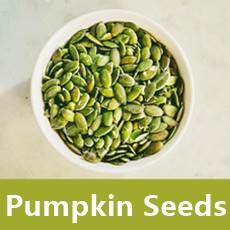Vaccines
The Benefits of Vaccination
Fact Checked
×All the content published in our website is fact checked to validate its accuracy.
Visit our guidelines web page to learn more about our strict processes regarding how we review our content's sources: reliable and reputable journals, media websites, universities, colleges, organizations, and professionals.
Our articles are based on scientific evidence, and the references are included in their footnotes, which are clickable links to sound scientific papers.
First published: 09. Dec.2024
Overview
Vaccines help to protect you, your children, your family, and your community from many serious and deadly diseases.
They are a cheap, effective, and powerful tool with minimal side effects, that saves lives, especially among the most vulnerable.
References and Further Reading
(1) Zhou F, Jatlaoui TC, Leidner AJ, et al., (2024). Health and Economic Benefits of Routine Childhood Immunizations in the Era of the Vaccines for Children Program — United States, 1994–2023. MMWR Morb Mortal Wkly Rep 2024;73:682–685. DOI: http://dx.doi.org/10.15585/mmwr.mm7331a2
(2) Hon BYC, Chan J, Ng KS, Lam SC., (2024). Predicting herd immunity achievement: a time-series analysis of vaccination and fatality rates using 1,075 days of COVID-19 data. Front Public Health. 2024 Sep 20;12:1403163. doi: 10.3389/fpubh.2024.1403163. PMID: 39371208
(3) Kim, T. H., Johnstone, J., and Loeb, M, (2011). Vaccine herd effect. Scandinavian Journal of Infectious Diseases, 43(9), 683–689. https://doi.org/10.3109/00365548.2011.582247
(4)CDC, National Center for Immunization and Respiratory Diseases, (2020). Who Should NOT Get Vaccinated with these Vaccines?. Reviewed: April 2, 2020. Accessed: Dec. 07, 2024
(5) Shahrokh Izadi, Seyed Mohsen Zahraei and Talat Mokhtari-Azad, (2028). Seroprevalence of antibodies to measles and rubella eight months after a vaccination campaign in the southeast of Iran. Human Vaccines & Immunotherapeutics, 14:6, 1412-1416, doi: 10.1080/21645515.2018.1436920
(6) Kapadia F., (2022). Vaccine Solidarity Requires Social Justice: A Public Health of Consequence, February 2022. Am J Public Health. 2022 Feb;112(2):202-203. doi: 10.2105/AJPH.2021.306638. PMID: 35080927
(7) Doherty TM, Del Giudice G, Maggi S. , (2019). Adult vaccination as part of a healthy lifestyle: moving from medical intervention to health promotion. Ann Med. 2019 Mar;51(2):128-140. doi: 10.1080/07853890.2019.1588470. Epub 2019 Apr 26. PMID: 31025882
(8) odrigues Charlene M. C., Plotkin Stanley A., (2020). Impact of Vaccines; Health, Economic and Social Perspectives. Frontiers in Microbiology Vol 11, doi=10.3389/fmicb.2020.01526 ISSN 1664-302X
(9) World Health Organization. A Brief History of Vaccination.
(10) Shattock, Andrew J et al., (2024). Contribution of vaccination to improved survival and health: modelling 50 years of the Expanded Programme on Immunization. The Lancet, Volume 403, Issue 10441, 2307 - 2316 May 25, 2024
About this Article
Vaccines, P. Eichenblat
©2024 Fit-and-Well.com. First Published: 09.Dec.2024. Update scheduled for 09.Dec.2027. https://www.fit-and-well.com/fitness/vaccines.html
Tags: vaccines




